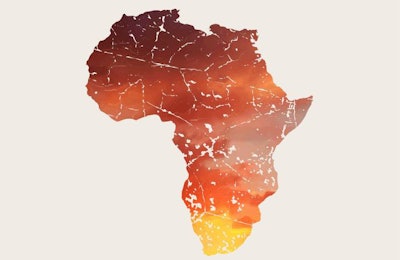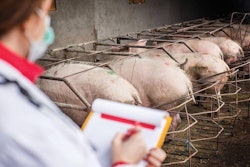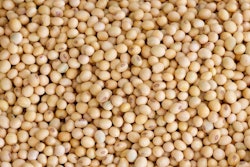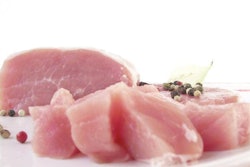
Growing use of insect meal in animal feed could bolster agriculture and improve animal and human nutrition in Africa.
Insect meal may be a novelty in much of the world, but the emerging feed ingredient could prove key in improving animal feed security in Africa, where many residents lack access to adequate protein and other nutrients.
According to a paper from the Annals of the Entomological Society of America, African nations stand to gain unique benefits from insect meal, and may also be uniquely poised to leapfrog more developed countries to become leaders in insect meal production.
Reliable sources of conventional feed ingredients such as corn and soybeans can be difficult to come by in some African countries, according to Jennifer Pechal, an assistant professor of entomology at Michigan State University, and the lead author on September’s Entomological Society paper. Extended droughts have decimated crops in southern Africa, and geopolitical conflicts have displaced farmers. Non-native pests such as the fall armyworm are also devastating local crops.
But these same regions boast the ideal climate for raising black soldier flies, which prefer warm tropical regions like southern Africa, Pechal said. Raising black soldier flies doesn’t require the extensive footprint of plant-based feed ingredients, and can be produced using locally available organic materials or consumer food waste, making it potentially more affordable than other protein ingredients such as insect meal, which many African farmers struggle to afford.
Black soldier flies are also surprisingly easy to harvest and use in animal feed, Pechal said.
“It’s a system that’s very simple. It doesn’t have to be mechanized,” she said. Black soldier flies “have a cool behavior where when they go to pupate, they self-harvest themselves.”
Community-scale cooperatives could not only produce black soldier flies for use in animal feed, but could also help dispose of community garbage, which often ends up in piles on the streets, Pechal said.
Increased animal feed security, especially more ready access to alternative protein ingredients, would likely result in more productive poultry and aquaculture production in Africa, which would, in turn, improve human access to nutrition. According to the Annals of the Entomological Society of America, Africa has the lowest annual intake of protein per capita of any geographical region. Malawians, for example, consumed 27.64 kg/capita of meat, milk and seafood in 2013, while Americans consumed 332.23 kg/capita. Meat consumption is expected to increase, putting additional pressure on the continent’s sparse grasslands and other natural resources, as household income rises.

















